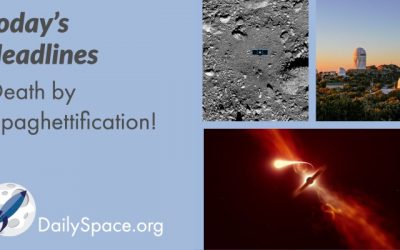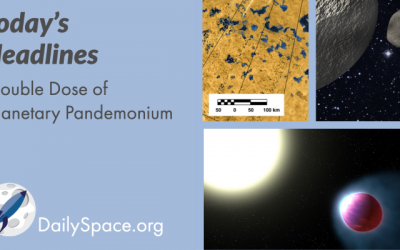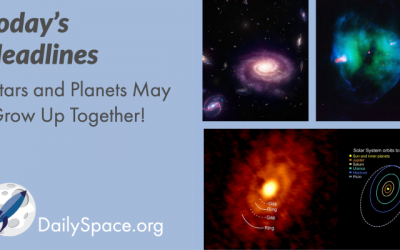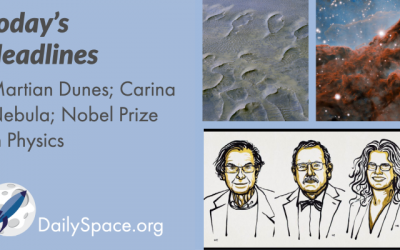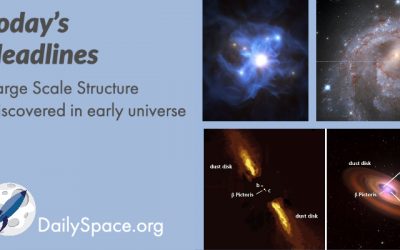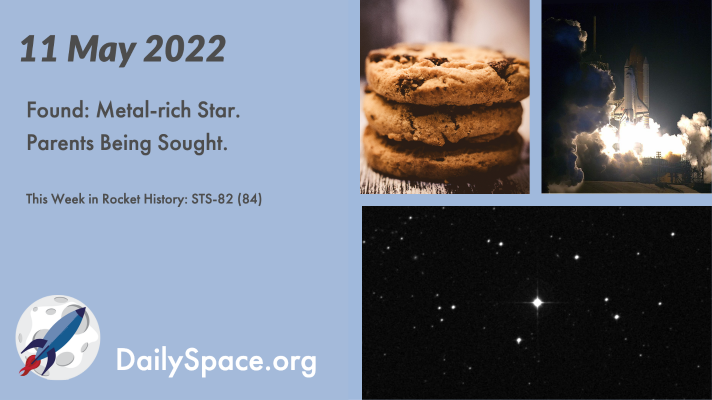
Found: Metal-rich Star. Parents Being Sought.
A ninth-magnitude star in our neighborhood of the Milky Way has been found to contain 65 different elements, including large proportions of heavier elements like gold. This star required either a supernova or a neutron star merger to form. Plus, another solar flare, a strong marsquake, cosmic rays, cookies, and this week in rocket history, we look back at STS-84.
Catch us on NowMedia TV
Saturday 11pm Central / midnight Eastern
Sunday 10pm Central / 11pm Eastern
Watch live on these stations: Houston 21.10, Atlanta 22.10
or tune-in on Apple TV, Roku, YouTube Live, or Amazon Prime
Death by Spaghettification!
Join us for a look at today’s top story: ESO telescopes captured the last moments of a star being destroyed by a black hole in a tidal disruption event. Plus scientists are studying Bennu’s surface to get ready for next week’s touch and go sample collection, and NOIRLab begins the process of restarting telescope operations at several observatories around the world.
Planetary Pandemonium: Double Dose
Join us as we take a look back two weeks’ worth of planetary stories, including solar system research on a binary trans-Neptunian object, diamonds in meteorites, the stratification of Titan’s lakes, and how Jupiter affected Venus’ habitability. Plus we go farther into space and see how super flares affect the chances for life on exoplanets and find an exoplanet with vaporized metal in its atmosphere.
Stars and Planets May Grow Up Together!
New images taken with the ALMA Observatory show a young proto-stellar disk with the rings and gaps of planetary formation growing together, once again challenging our preconceptions. And other research into stellar formation adds heavy metals to the mix to match models to observations. Plus an old, metal-poor galaxy halo.
Rocket Roundup for October 7, 2020
Join us for this week’s Rocket Roundup with host Annie Wilson as we look back at the launches that happened from the past week, including one from China and one from Russia.
Martian Dunes; Carina Nebula; Nobel Prize in Physics
Research from our home Planetary Science Institute shows that the dune fields on Mars provide solid evidence for lithification and burial. Plus, Carina Nebula has been imaged with adaptive optics and looks amazing! And we take a look at the winners of this year’s Nobel Prize in Physics.
Large Scale Structure discovered in early universe
Using huge telescopes, researchers have discovered a Large Scale Structure of six galaxies around a seventh galaxy with a supermassive black hole, back in the first billion years of the Universe. Plus Hubble captures a time-lapse of a fading supernova and beta Pictoris c is directly imaged.


 We record most shows live, on Twitch. Follow us today to get alerts when we go live.
We record most shows live, on Twitch. Follow us today to get alerts when we go live.

